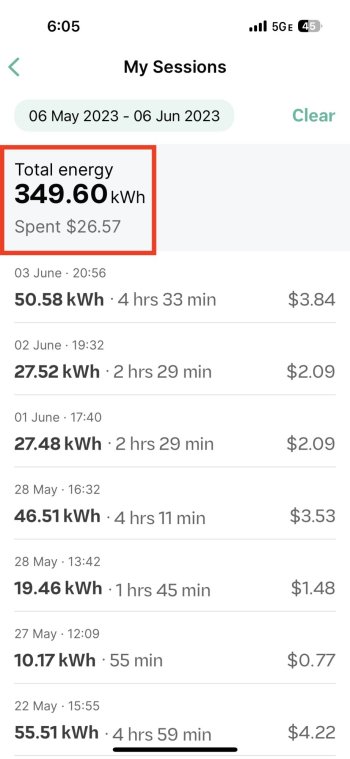How much distance does 30 min get you?
OK that sounds reasonable, but I don’t think the infrastructure is there to support a lot of EVs on the road. I’m used to this kind of station full of petro pumps. I’m not sure how many charge stations are here if any, maybe a couple.
Tesla charging stations are the most consistent and reliable in the US (for now). This is the main reason I went with Tesla, oh and Full Self Driving (Beta) which I use 90%+ of my driving. With Tesla, on a Supercharger, you will get about 50% charging in 30 minutes. Charging isn't linear, so it takes longer the closer you get to 100%. Charging also slows down if you use adjacent charging stations, so you want to spread out when charging (following the urinal rule).
Most Teslas you want to keep your max charge at or below 90%, so I have, and probably never will charge to 100%.
As someone else jokingly said, you only need as much charge as it takes to get to the next charging station with a buffer. Tesla's software does a great job of trip planning for you, and now you can even do it in the mobile app.
I live in NY, so I can only tell you my experience driving up and down the East Coast. Along the East Coast, almost every major rest stop has a bank of Tesla chargers. As a Tesla owner, we know which are working, and how many are occupied from the car GUI. They also finally got smart and moved the charging banks away from the buildings. So ICE have to go out of their way to occupy an EV charging spot.
Tesla has changed some of their chargers to "magic dock" which allows CCS fast charging (CCS is what most EVs use except US based Teslas). For now, there aren't enough for any non-Tesla to honestly expect to use them.
Level 1 - 110V low amp charging <= 20 amp
Level 2 - 220V <= 70 amp charging
Level 3 - DC Fast charging <= 350 kW
Level 4 - DC Fast Charging > 350 kW (I think typically they call it 1 MW when it goes up to 1000 kW)
Level 1 vs Level 2 vs Level 3 Vs Level 4 Chargers
Charging an electric vehicle is only as convenient as the charging speed. Levels are used to designate this speed.
When Tesla L4 chargers are everywhere, I would expect a full charge in 30 mins or less. Which as I mentioned, you don't actually need to fully charge. So typically, you would be in and out in about 15 mins or so.
I haven't gone on any road trips since I got my Tesla. I have used a super charger 1 time (the day I got it), because I didn't have my L2 charger installed yet. So 99.9% of my charging is at home. I have 50 amp circuit for 40 amp continuous charging. I use 30% battery during the day, it takes me 2 hours and 15 minutes to get back up to my starting point of 80%.
Last edited:



